Investor's Corner
How will Tesla perform in Mr. Trump’s America?
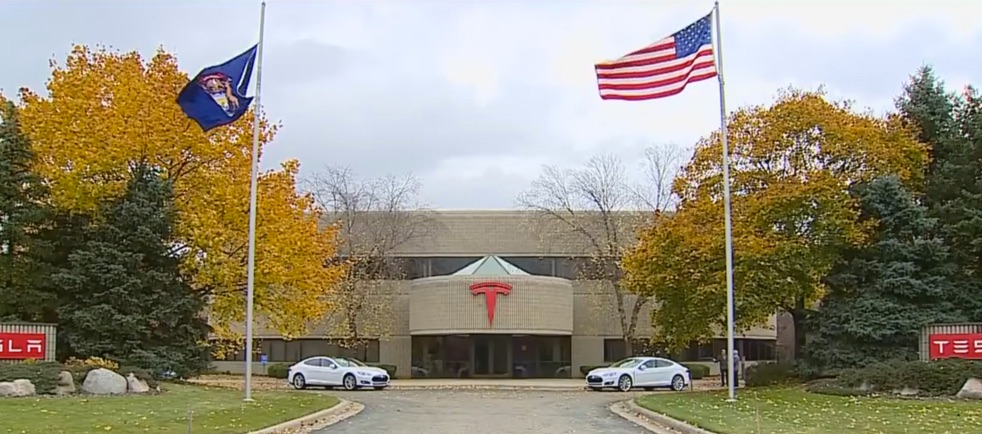
To say the results of the 2016 election were surprising is a gross understatement. That’s like saying the the national debt is rather a lot of money. What will a Trump presidency mean to Elon Musk and Tesla Motors? The answer is, it’s too early to tell. But we can make some (hopefully) educated guesses.
First and foremost, Trump is a champion of American companies providing jobs for Americans. Tesla has taken an abandoned factory in Fremont, California and turned it into one of the premier automobile manufacturing facilities in the world. And that’s just for openers.
Tesla has just announced it has acquired Grohmann Engineering, a highly respected German engineering firm located in in the city of Prüm near the border with Belgium and Luxembourg. With help from Grohmann, Musk wants to show the world how to increase production by a factor of ten by ‘building the machine that builds the machine’. That translates into higher productivity, something any businessman can understand.
Musk is committed to building a sustainable future while President-elect Trump is committed to a “Drill, baby, drill” mentality. Green Tech Media weighs in with the opinion that Trump will simply ignore the Paris climate accord and dismantle Obama’s Clean Power Plan. He undoubtedly will rein in the power of the EPA. What effect will that have on CAFE rules? We simply don’t know but no one should be surprised if vehicle efficiency targets for car companies become considerably watered down over the next few years.
Musk has always challenged the other car companies to build “compelling electric cars” but few have accepted the challenge. Most give the appearance of being dragged kicking and screaming into the zero emissions future while they continue to build every large truck and SUV they can weld, bolt, and screw together. One thing seems clear. Incentives for electric vehicles and for building a national EV charging infrastructure will likely be reduced in a Trump administration or eliminated all together.
That would not seem to be a major issue for Tesla Motors, whose current customers are mostly able to afford the products Tesla makes with or without incentives. But it could be an issue for at least some of the 373,000 Model 3 reservation holders. It is more likely that SolarCity’s rooftop solar business will be negatively impacted by a Trump administration. The President-elect has said publicly he doesn’t believe government should pick winners and losers in the commercial world. Utility companies may find it easier to resist encroachment on their business model from rooftop solar with Trump at the helm.
Elon told CNBC News on November 4 that he had hoped Donald Trump would not get the nomination and that Hillary Clinton’s climate policies were more in tune with his own preferences. He went on to say he now felt a bit stronger that Trump was “not the right guy, he just doesn’t seem to have the sort of character that reflects well on the United States.”
Will Musk and Trump be able to do business? Trump has to be a big supporter of American business but for Musk, the idea of his zero emissions cars with electricity derived from burning more coal and more natural gas extracted from our national parks and public lands has to be a bitter pill to swallow.
For the moment, America has said it doesn’t give a damn about sustainability, even though 60% of people tell the pollsters that building a green economy is high on their wish list. For now, “cognitive dissonance” is the order of the day. The people have spoken and their message is they want good jobs and lots of them sooner rather than later. A lot of people have taken Donald Trump at his word that he can provide them.
It is doubtful that Trumps’ victory will impact the fate of Tesla Motors or SolarCity negatively. Tesla has too much momentum built up and solar power is poised to supplant fossil fuels and nuclear simply because it costs less. Solar won’t need incentives if it is cheaper than the alternatives. Now electric cars will need to get less expensive to appeal to mainstream buyers.

Investor's Corner
Elon Musk praises Ray Dalio’s Bridgewater for accumulating TSLA stock
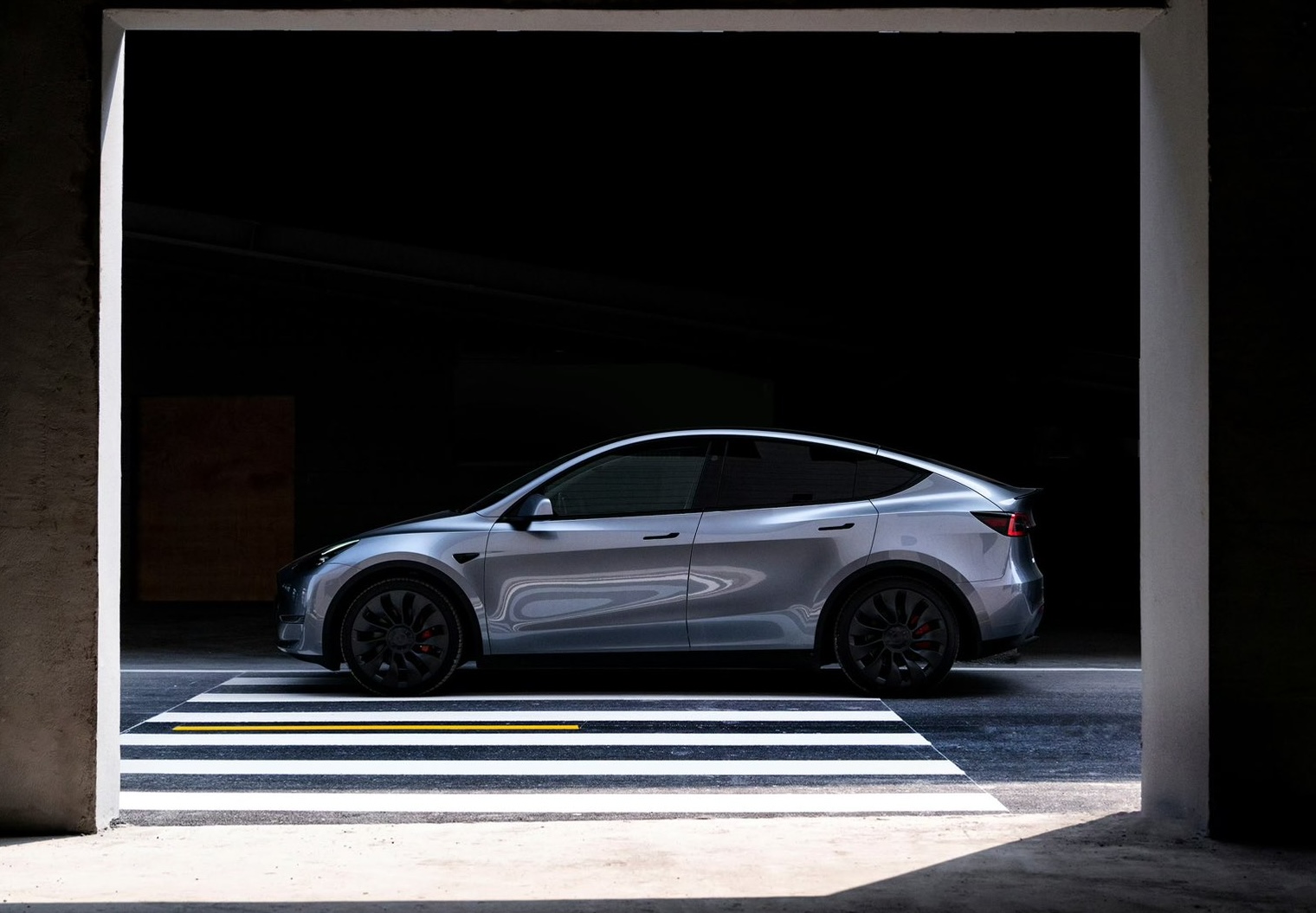
A recent 13-F filing from legendary investor and billionaire Ray Dalio’s Bridgewater Associates has revealed that the hedge fund has added over $62 million worth of Tesla stock (NASDAQ:TSLA) to its portfolio.
Elon Musk has praised the billionaire’s investment in a post on X.
Bridgewater’s TSLA stake:
- As per Bridgewater’s 13-F filing, it currently holds 153,589 shares of TSLA, which costs $62,025,382.
- The firm added the TSLA shares in the fourth quarter.
- Tesla shares gained momentum after its Q3 2024 earnings call, and it only gained more strength after the election of U.S. President Donald Trump.
- At the end of 2024, Tesla shares were up 62%, as noted in a MarketWatch report.
- Tesla stock is still up 88% over 12 months despite a steep drop over the past month.
Smart move
— Elon Musk (@elonmusk) February 14, 2025
A vote of confidence:
- Bridgewater Associates is one of the largest hedge funds in the world, so the firm’s stake in TSLA could be interpreted as a vote of confidence in the electric vehicle maker.
- Elon Musk has praised the firm’s investment. In a post on X, Musk noted that Bridgewater’s investment was a “smart move.”
- Elon Musk has been quite consistent on his idea that Tesla could eventually become the world’s most valuable company. He emphasized this point during the Q4 2024 earnings call.
- “I see a path. I’m not saying it’s an easy path but I see a path of Tesla being the most valuable company in the world by far. Not even close. There is a path where Tesla is worth more than the next top five companies combined,” Musk said.
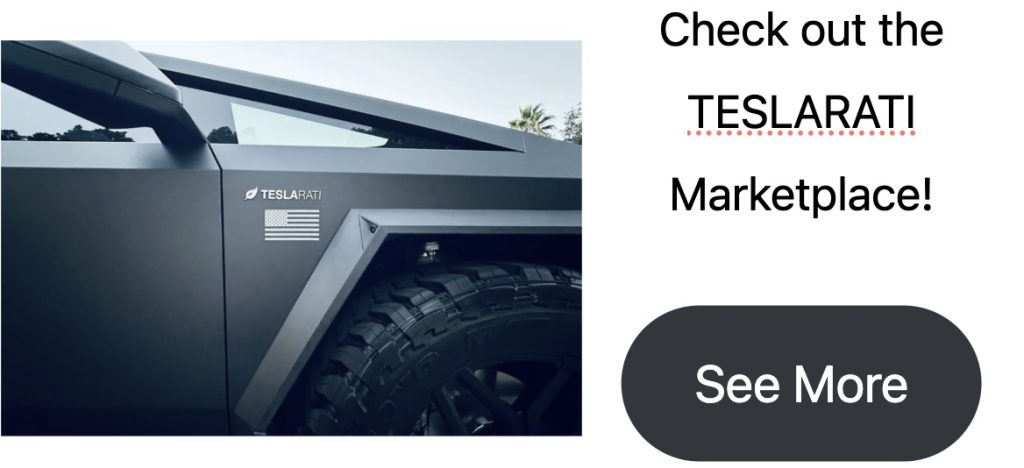

Don’t hesitate to contact us with news tips. Just send a message to simon@teslarati.com to give us a heads up.
Investor's Corner
Tesla (TSLA) gets $475 price target and “Buy” rating from Benchmark
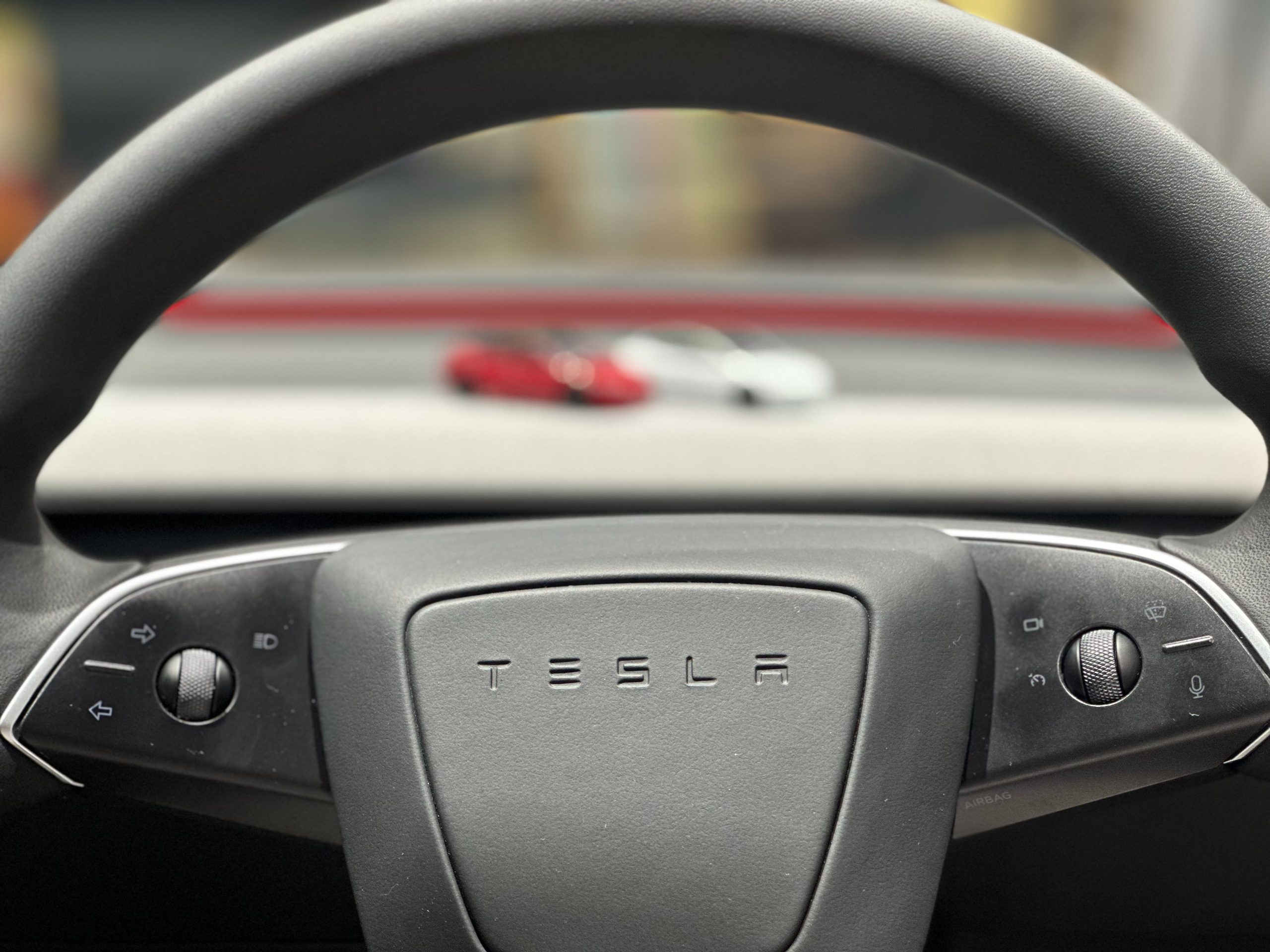
Tesla shares (NASDAQ:TSLA) have received a “Buy” rating and a $475 per share price target from Benchmark.
Benchmark’s price target is based on 68.2 times its 2028 earnings before interest, taxes, depreciation, and amortization (EBITDA), as noted in a Morningstar report.
Tesla rating:
- In a note to clients, Benchmark analyst Mickey Legg noted that Tesla has outlined a path towards more growth through several of its initiatives.
- These include Tesla’s work in autonomous driving systems, robotics, and energy generation.
- The company could also make more headway into the electric vehicle segment.
- “The company has outlined a path for growth with a more affordable vehicle scheduled for 1H25, unsupervised full self-driving as a paid service this June in Austin, TX, and Optimus robot production ramp through 2026 and beyond,” the analyst stated.
$TSLA +1.8% pre-mkt as Benchmark initiates TSLA with a Buy rating and $475 price target. pic.twitter.com/KT6BTTW5kJ
— Gary Black (@garyblack00) February 12, 2025
More potential:
- While he sees potential in Tesla, the Benchmark analyst noted that his current model only incorporates vehicle growth.
- Thus, there could be “significant potential upside” if the company’s autonomous vehicle program and Optimus are scaled.
- “Tesla’s market leadership, near-term catalysts, strong management, and diversified business justify the stock’s market premium,” Legg noted.


Don’t hesitate to contact us with news tips. Just send a message to simon@teslarati.com to give us a heads up.
Investor's Corner
Tesla is ‘better-positioned’ as a company and as a stock as tariff situation escalates
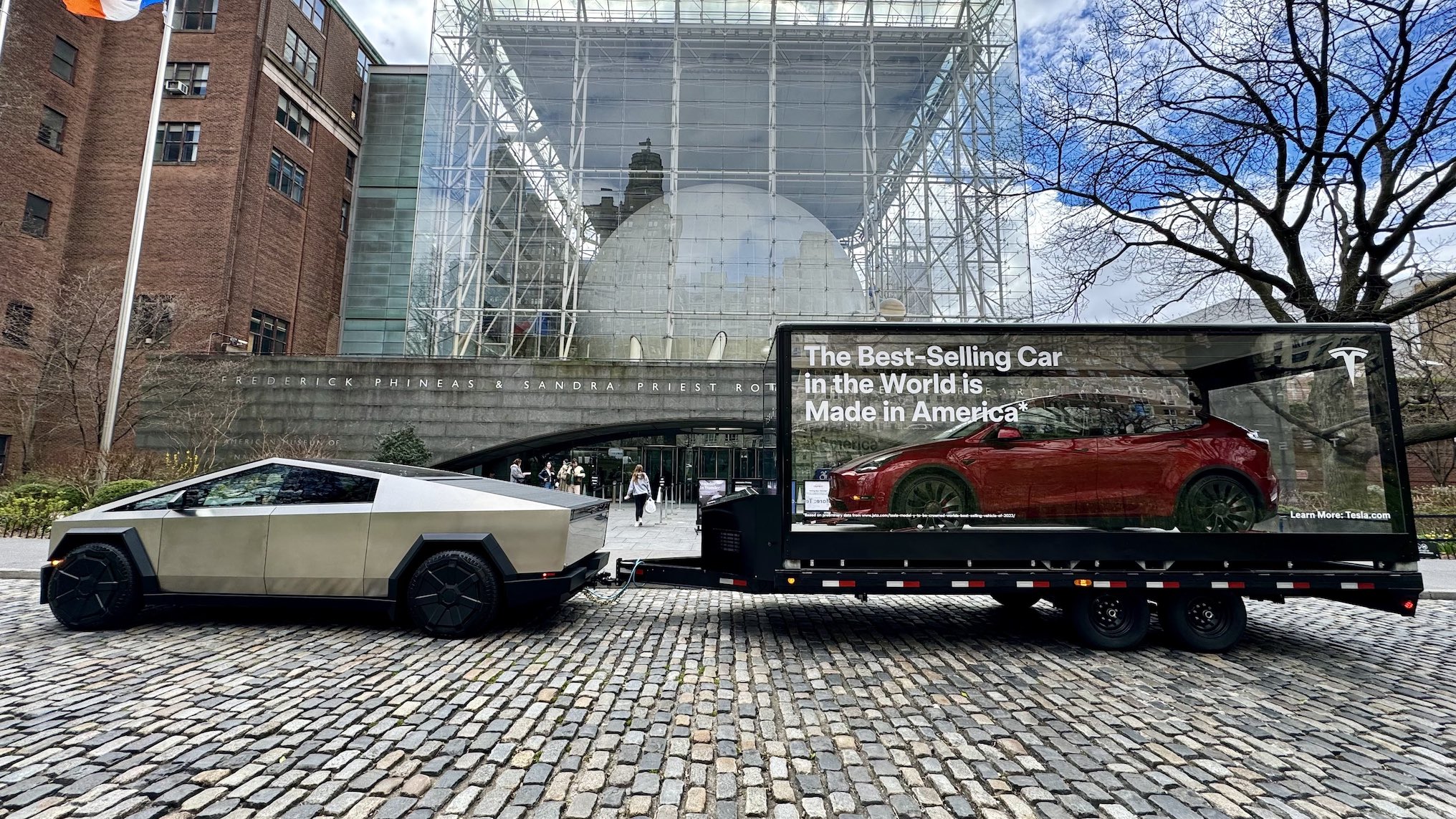
Tesla is “better-positioned” as a company and as a stock as the tariff situation between the United States, Mexico, and Canada continues to escalate as President Donald Trump announced sanctions against those countries.
Analysts at Piper Sandler are unconcerned regarding Tesla’s position as a high-level stock holding as the tariff drama continues to unfold. This is mostly due to its reputation as a vehicle manufacturer in the domestic market, especially as it holds a distinct advantage of having some of the most American-made vehicles in the country.
Analysts at the firm, led by Alexander Potter, said Tesla is “one of the most defensive stocks” in the automotive sector as the tariff situation continues.
The defensive play comes from the nature of the stock, which should not be too impacted from a U.S. standpoint because of its focus on building vehicles and sourcing parts from manufacturers and companies based in the United States. Tesla has held the distinct title of having several of the most American-made cars, based on annual studies from Cars.com.
Its most recent study, released in June 2024, showed that the Model Y, Model S, and Model X are three of the top ten vehicles with the most U.S.-based manufacturing.
Tesla captures three spots in Cars.com’s American-Made Index, only U.S. manufacturer in list
The year prior, Tesla swept the top four spots of the study.
Piper Sandler analysts highlighted this point in a new note on Monday morning amidst increasing tension between the U.S. and Canada, as Mexico has already started to work with the Trump Administration on a solution:
“Tesla assembles five vehicles in the U.S., and all five rank among the most American-made cars.”
However, with that being said, there is certainly the potential for things to get tougher. The analysts believe that Tesla, while potentially impacted, will be in a better position than most companies because of their domestic position:
“If nothing changes in the next few days, tariffs will almost certainly deal a crippling blow to automotive supply chains in North America. [There is a possibility that] Trump capitulates in some way (perhaps he’ll delay implementation, in an effort to save face).”
There is no evidence that Tesla will be completely bulletproof when it comes to these potential impacts. However, it is definitely better insulated than other companies.
Need accessories for your Tesla? Check out the Teslarati Marketplace:
- https://shop.teslarati.com/collections/tesla-cybertruck-accessories
- https://shop.teslarati.com/collections/tesla-model-y-accessories
- https://shop.teslarati.com/collections/tesla-model-3-accessories
Please email me with questions and comments at joey@teslarati.com. I’d love to chat! You can also reach me on Twitter @KlenderJoey, or if you have news tips, you can email us at tips@teslarati.com.
-
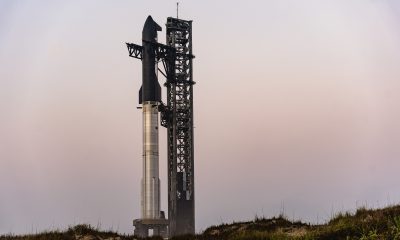
 News20 hours ago
News20 hours agoSpaceX announces Starship Flight 8’s new target date
-
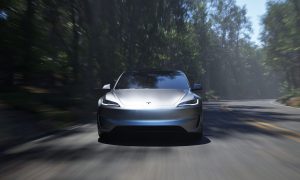
 News2 days ago
News2 days agoTesla launches fresh U.S. promotions for the Model 3
-
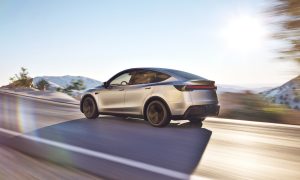
 Elon Musk3 days ago
Elon Musk3 days agoTesla mulls adding a new feature to fight off vandals as anti-Musk protests increase
-
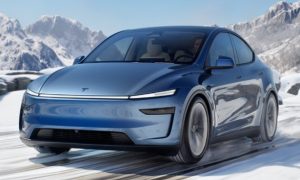
 News4 days ago
News4 days agoTesla’s lead designer weighs in on plans for these two Model Y colors
-
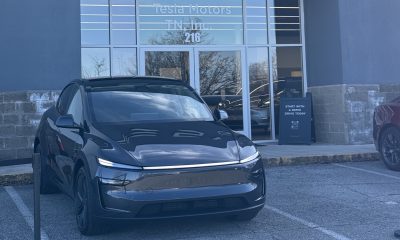
 News3 days ago
News3 days agoTesla starts Model Y ‘Launch Edition’ deliveries in the U.S.
-
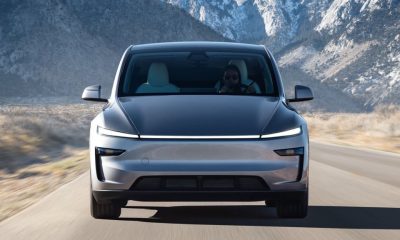
 Elon Musk3 days ago
Elon Musk3 days agoTesla gaining with Republicans as it loses traction with Democrats: Stifel
-
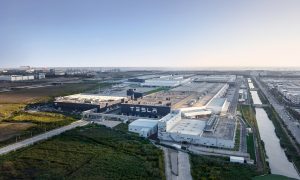
 News2 days ago
News2 days agoTesla China wholesale figures drop in February amid new Model Y transition
-

 News3 days ago
News3 days agoTesla design head reflects on over 16 years with the company





